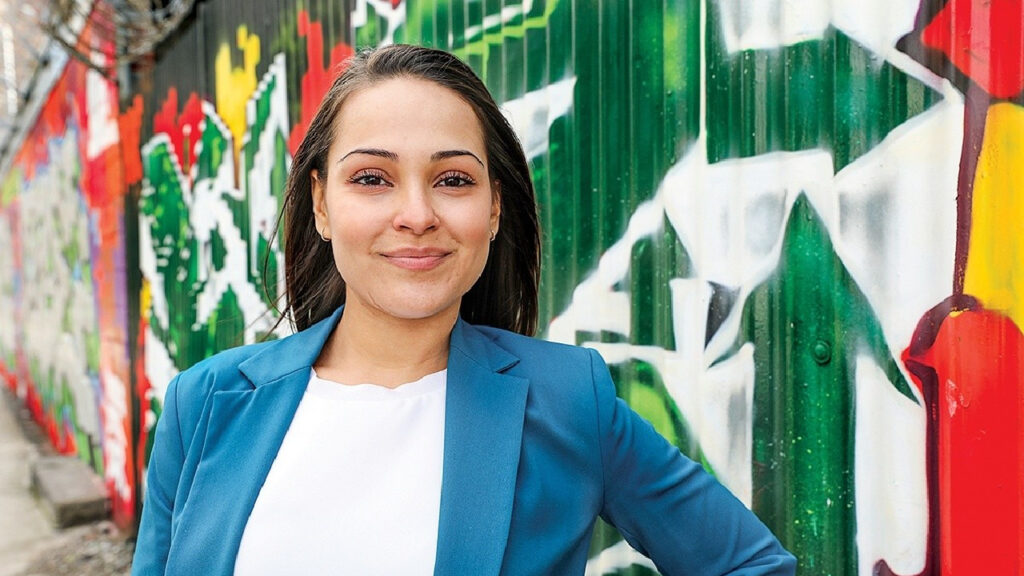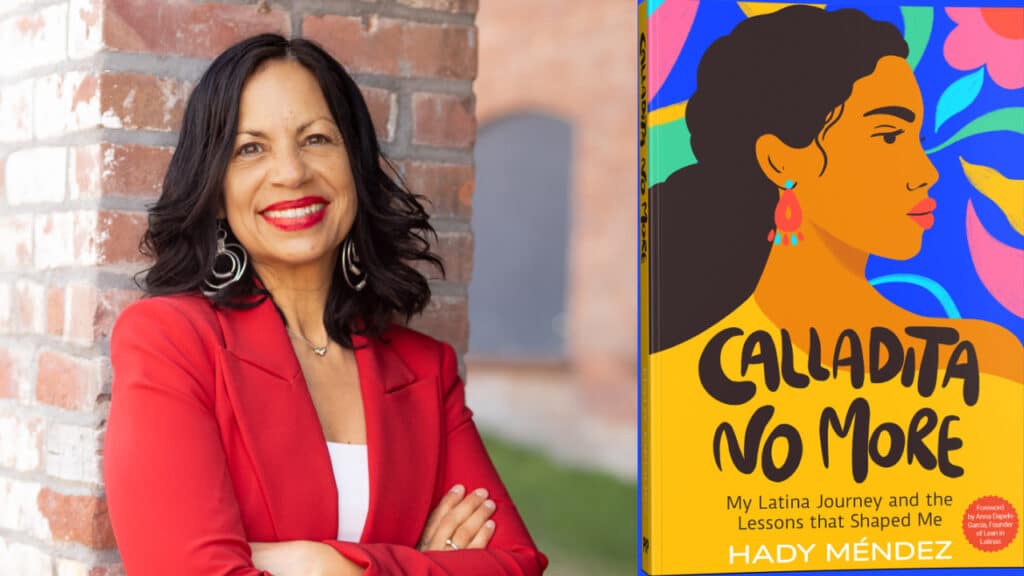
She Graduated College Without Ever Learning Money. Now Yanely Espinal Is Making Sure We Don’t Repeat That Story
Yanely Espinal was born and raised in Brooklyn, New York, and became the first person in her family to graduate from college. But even after nearly two decades of school, she realized there was one class she never took: how to manage money.
“It wasn’t until after college that I really saw how much I didn’t know,” Yanely told FIERCE. “I was racking up credit card debt, thinking I’d just pay it off with my first salary. But seeing the bills grow every month made me realize I had no real plan.”
Her experience opened her eyes to a gap in the education system. “We learned math, reading, and writing, but no one taught us how to use those skills to handle real-world finances like interest rates, taxes, bank accounts, and investments. I felt a little let down by school,” she said.
Lessons Yanely Espinal learned from home
Growing up in a family of nine children, Yanely’s father worked hard to make ends meet, first in a restaurant and later as a taxi driver. “Money was always tight. My dad taught me that you have to work hard for everything,” she recalled. “Looking back, I see now that there are smarter ways to earn and grow money beyond manual labor.”
Yanely’s understanding of money was shaped not just by her environment, but by her parents. On her father’s side, hard work was everything. On her mother’s side, generosity came first. “My mom is extremely religious and always giving, donating to the church, volunteering, sewing costumes for Christmas pageants,” Yanely recalled. “Even though I love that example of service, I also learned that she rarely puts herself first. I wanted to take the good lessons and also carve out a different path for myself.”
The turning point in Yanely’s own financial journey came in a moment that felt almost serendipitous. While standing in line at the supermarket, she spotted a book on display: Women and Money by Suze Orman.
“I was probably twenty-three or twenty-four, young and stressed about debt, crying in my room and not knowing what to do,” she said. “And there it was. Like a sign.” She bought the book for nine dollars and finished it in a day.
“The lessons in that book hit home immediately,” Yanely said. “It talked about patterns for women who have historically been dependent on men. Up until fifty years ago, women couldn’t even get a mortgage or a credit card in their own name. Reading it made me realize I needed to take control of my own finances.” That single moment ignited a mission to master money.
From personal struggle to helping others
Yanely’s journey from credit card debt to financial empowerment didn’t stop with her own learning. She wanted to share her knowledge with others, and that led her from the classroom to YouTube.
“Honestly, I didn’t think it would be that public at first,” she admitted. “I thought I’d just post videos for the few people I shared the link with.” Her first step was simple: she emailed the video to friends, family, and former colleagues, asking for feedback. About thirty people received it, but soon, the views multiplied.
“I noticed one video had 120 views, even though I only sent it to thirty people. That is when I realized the power of social media. Anyone in the world could find it.”
Her channel, MissBeHelpful, grew slowly but steadily. Authenticity became her guiding principle. “I never claimed to have a million dollars or a fancy lifestyle,” Yanely said. “I was honest about living on a tight budget. I showed how I meal-prepped, budgeted, and saved money. People could relate to that, and that relatability made them connect with me.” As of this writing, she has over 58,700 subscribers and 4,924,169 total views on her channel.
Teaching skills meet financial literacy
Yanely’s background as a classroom teacher gave her a unique advantage when she decided to share her financial journey online. “I have a master’s in education, so I know how to take complicated topics like credit card interest rates and break them down in a way people can actually understand and remember,” she explained. “I taught fractions in the classroom; now I teach interest rates, debt management, and investing in the same way.”
The story behind MissBeHelpful
Her YouTube channel, MissBeHelpful, started with a simple idea: to be genuinely helpful. “I was inspired by the Little Miss cartoon characters, and Little Miss Helpful stood out to me,” she said. “I wanted to be a young woman people could recognize for just wanting to help.”
After brainstorming variations to avoid copyright issues, she landed on MissBeHelpful. “It’s short, simple, and explains exactly why I do this work.”
The channel quickly developed a community. “When people started messaging me and commenting, I realized it could be bigger than just me,” Yanely said. She created an email and even a domain.
Connecting the dots: Math, money, and investing
As Director of Educational Outreach at Next Gen Personal Finance, Yanely believes that financial literacy starts in the classroom, but too often, students don’t see how math connects to money in real life. “We learn linear expressions and exponential functions, but no one shows how these concepts apply to money,” she explained. “A simple interest account grows linearly, slowly. Compounding interest? That is exponential growth, and that is where wealth can really build.”
She emphasized the importance of investing and credit literacy. “Most students learn that debt is bad, that borrowing is dangerous. But wealthier people use debt strategically, like a securities-backed line of credit, so they don’t have to sell their investments and trigger taxes. Understanding the credit system, how debt works, and how to invest are critical lessons that schools should teach.”
For Yanely, the goal is clear: students should leave school equipped to start building wealth immediately, no matter their first job. “Even if you are working at Dunkin’ Donuts, you can put a small portion of your paycheck into a Roth IRA or other investments. The earlier you start, the more powerful compounding becomes,” she said.
How Yanely Espinal is breaking the cycle
Yanely emphasizes that it is never too late to take control of your finances, no matter your age. “Even if you’re in your fifties or sixties, you still have years ahead to improve your financial situation,” she said. “Starting late is better than never; it also creates generational benefits. Instead of leaving debt behind, you can leave money or investments for your children or grandchildren.”
She also addresses the emotional weight of money, particularly for women of color. “Many people grew up in households where money was stressful. That stress becomes internalized, and we think money is always hard or scary. The way to change that belief is by changing your actions first.”
Action, Yanely argues, precedes mindset. “Beliefs follow behavior. You don’t just decide you’re disciplined, you become disciplined by taking the first step.” She encourages small, practical steps: logging into your credit card account, understanding balances and interest rates, or booking a session with a fiduciary financial advisor. “It is like therapy for your finances. Start somewhere, take one concrete action, and momentum will follow.”
Mind Your Money
Yanely’s book, Mind Your Money, published in May 2023, was born out of a desire to make personal finance relatable and accessible. “A lot of finance books are technical,” she explains, “and my younger brother even told me he couldn’t get past the first pages of some recommended books as they sounded like textbooks. I realized that, just as people watch my videos because they feel I’m authentic, raw, honest, and funny, they want that in a book as well. Why shouldn’t it be there just because it’s written on a page?”
From mindset, the book moves into practical lessons: thinking about money differently, managing debt, budgeting, and eventually investing. Yanely’s approach blends storytelling with actionable strategies, making personal finance feel approachable without ever being condescending.
The impact of her book, Mind Your Money, is something Yanely treasures.
“Honestly, I love it when people leave reviews or send emails. I have a lot of feedback, especially from young women and Gen Z readers, who shared how the book changed the way they approach money. I started investing because of the goals I set, and my credit score improved because I applied what I learned. Seeing readers take action is outstanding. That is what matters most: action.
When asked what money habit or mindset shift she wishes every young Latina would adopt today, Yanely doesn’t hesitate: “Start putting yourself first financially. Too often, we are conditioned to believe we are the rock of the home, that everyone revolves around us. We take care of our kids, our parents, our partners, our friends. Yes, you’re a mother, an aunt, a sister, a wife, but you are you first. I wish more Latina women would invest in their own Roth IRA or brokerage account before asking how to set up a 529 plan for their children. You can’t put your child first if you haven’t secured your own financial foundation. Only once your situation is stable and strong should you begin to make plans for your children, your spouse, your family, or your community.”




